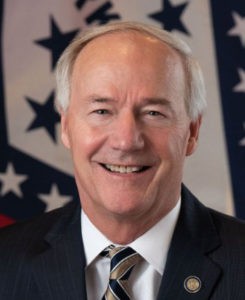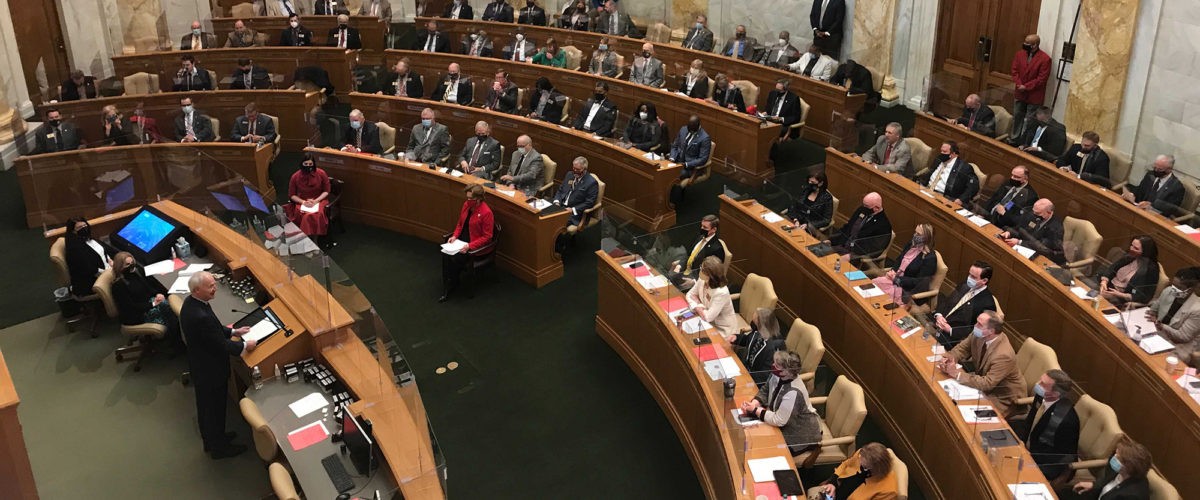Personal conscience now outranks the responsibility to provide medical care to all people equally in Arkansas, according to a bill passed by the state Legislature and signed into law by Gov. Asa Hutchinson March 26.
Senate Bill 289, also known as the Medical Ethics and Diversity Act, is one of several legislative efforts in Arkansas that critics say take direct aim at citizens who identify in the LGBTQ community.
However, the bill is so sweeping in its allowance for “religious, moral or ethical beliefs” that health care providers may make their own definitions. The bill appears to target specifically providers who do not want to serve gay, lesbian, bisexual or transgender persons, as it is among several anti-transgender bills in the state legislature this session.
There is no limitation placed on what constitutes “religious, moral or ethical beliefs.”
There is no limitation placed on what constitutes “religious, moral or ethical beliefs” that might prompt a denial of service from a doctor, nurse, pharmacist, technician, clinic or hospital. The only limitation given is to require everyone be given equal access to “emergency” care.
“Emergency care” is required according to the U.S. Code, which says hospital emergency departments “must provide for an appropriate medical screening examination within the capability of the hospital’s emergency department … to determine whether or not an emergency medical condition … exists” when a patient presents with certain acute or life-threatening symptoms.

Asa Hutchinson
Hutchinson opposed a similar bill in 2017 that did not advance beyond a House committee. However, he said this year’s law that he signed is better because it still requires emergency care.
“I support this right of conscience so long as emergency care is exempted and conscience objection cannot be used to deny general health service to any class of people,” the governor said in a statement. “Most importantly, the federal laws that prohibit discrimination on the basis of race, sex, gender and national origin continue to apply to the delivery of health care services.”
Those very federal laws on discrimination on the basis of sex and gender are the concern of Democrats in the U.S. Congress who believe they do not adequately protect the LGBTQ community from all types of discrimination. Several bills pending at the federal level seek to resolve this issue.
The new Arkansas bill bears some similarity to a Right of Conscience Rule issued by President George W. Bush on Dec. 18, 2008, allowing health care workers to refuse care based on their personal beliefs. President Barack Obama later rescinded the Right of Conscience Rule.
The new Arkansas act could be used, for example, to deny hormone therapy for transgender patients when hospitalized, to deny a wide range of services for same-sex couples, to refuse to fill prescriptions for birth control, or to ignore patient directives on end-of-life care.
“There is no sugarcoating this: This bill is another brazen attempt to make it easier to discriminate against people and deny Arkansans the health care services they need,” said ACLU of Arkansas Executive Director Holly Dickson.
Kevin Heifner, a Baptist layman and physician in Little Rock, Ark., is among the critics of the Arkansas conscience rule.
“This flies in the face of every basic tenet that I signed onto when I went to medical school.”
“This legislation not only is misguided but it is poorly written,” he said. “It is deliberately constructed to leave open gaping holes for the ability of physicians in the near future to decide to not treat certain classes of individuals based on their conscience. This flies in the face of every basic tenet that I signed onto when I went to medical school.”
While perhaps targeting the LGBTQ community today, the same vague provisions could be used against anyone for a number of reasons, he warned. “This should concern you. It also cheapens the professional ethic under which I ply my trade.”

Kevin Heifner
Heifner called the new law “a canard, a lie, a disingenuous attempt to deflect from the actual issue being legislated. The matter being legislated is morality, not medical care. This is my fundamental criticism of this law. This legislation is not about providing medical care. It is about promotion of a particular socio-cultural worldview which we have been debating for decades.”
And in this view, he said, he finds himself surprisingly expressing libertarian views: “Do not, do not give in without forethought and testing of your own conscience any intrusion by the government or partisan politics into your personal health care. … I do not want the government involved in any matter related to personal conscience.”
One reason the Arkansas legislation is so vague is because legislators don’t have the courage to say what they’re mainly concerned about, Heifner said.
“The proponents of this bill will quickly admit that it is about a single social issue. Fundamentally, I don’t have a problem if they’re willing to have the courage to put forth legislation which makes being transgender a criminal offense up for a vote. Do it. Let’s see what our society has to say about that issue. But until it is criminalized, stay out of it.”
The health care conscientious objector law is one of several measures targeting transgender people in Arkansas this session. Last Thursday, the day before this bill signing, Hutchinson signed a law that prohibits transgender women and girls from playing on sports teams that match their gender identity but not their given gender at birth. And today, a vote is scheduled on another proposal that would prohibit gender-confirming treatments and surgery for minors.
The health care conscientious objector law is one of several measures targeting transgender people in Arkansas this session.
Transgender advocates and allies have said those two issues — sports teams and gender-confirming surgery for minors — are solutions in search of a problem. Yet similar bills are in process in Republican-led state legislatures across the country.
Meanwhile, Hutchinson has been pushing this session for legislators to pass a hate crimes bill, as Arkansas is one of only three remaining states in the union without such protections. The bill would impose up to 20% additional jail time or fines for targeting someone for harm because of their race, religion, sexual orientation or gender identity.
However, the Republican governor’s own party opposes the hate crimes bill and has stalled it, likely leaving it dead for this session.
The bill signed last Thursday on transgender participation in sport teams, Senate Bill 354, made Arkansas the second state in the nation to solidify such provisions, despite a national push by conservative advocacy groups.
The Human Rights Campaign reported: “The legislative fight to pass discriminatory anti-transgender legislation has been fast and furious, led by national groups aiming to stymie LGBTQ progress made on the national level and in many states. There are so far 174 anti-LGBTQ bills under consideration in state legislatures across the country. Of those, 95 directly target transgender people and about half of those would, like SB 354, ban transgender girls from participating in sports consistent with their gender identity.”
HRC said these are “attacks on transgender youth that are fueled by discrimination and not supported by fact. Collegiate and professional sports organizations have had trans-inclusive policies for years without incident, and there is no reason Arkansas needs a ban on transgender participation in sports.”
The bill up for a potential final vote today, House Bill 1570, would prohibit health care professionals from offering care or even referring transgender youth for medically necessary health care. It would bar the use of state funds for gender-affirming health care — not just surgery — for transgender people under 18, and it would allow private insurers to refuse to cover gender-affirming care for patients of any age.
Under this bill, doctors who provide medically necessary care to transgender youth would risk losing their licenses and be subject to lawsuits by individuals and the state. This means that while doctors could claim a conscientious objection to deny care to transgender persons, doctors who want to provide a full range of care to transgender persons could land in jail.
Related articles:
Equality Act stirs passions about the definition of religious liberty and RFRA’s role
Anti-transgender bills introduced in more than a dozen state legislatures
Does landmark religious freedom legislation need a fix or is it fine as is?


